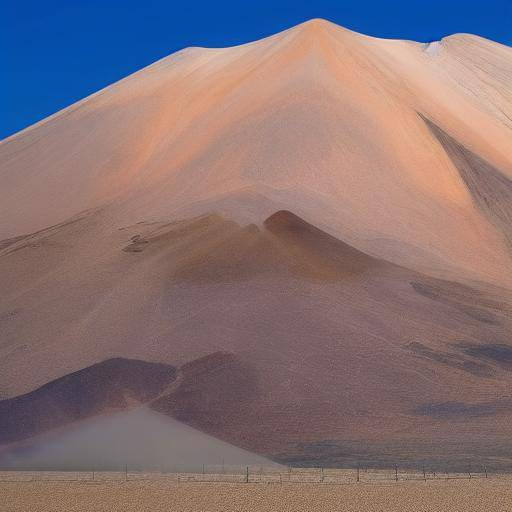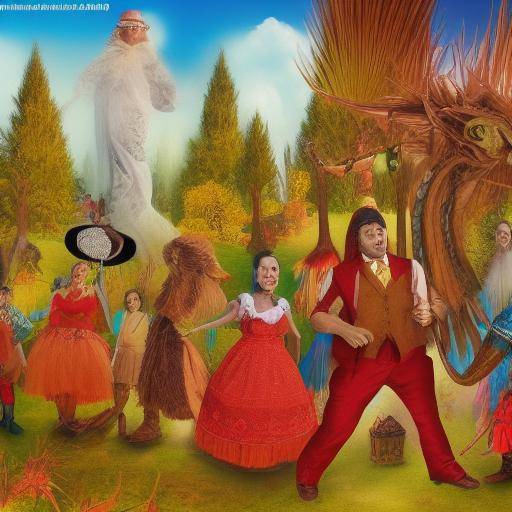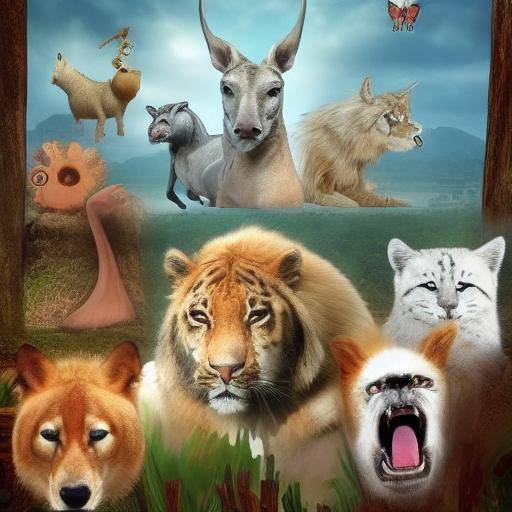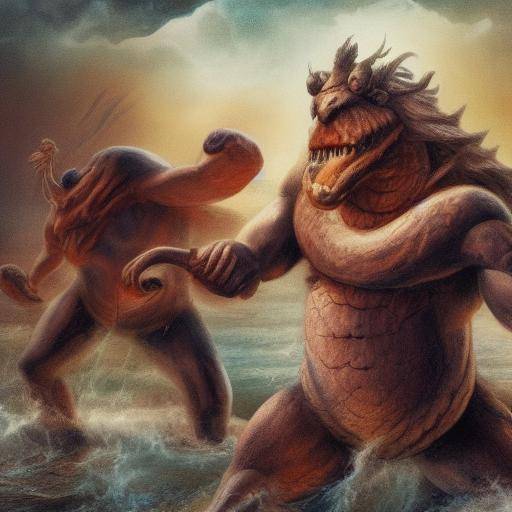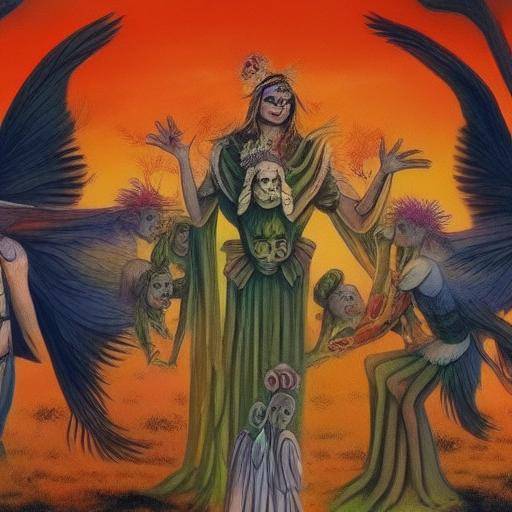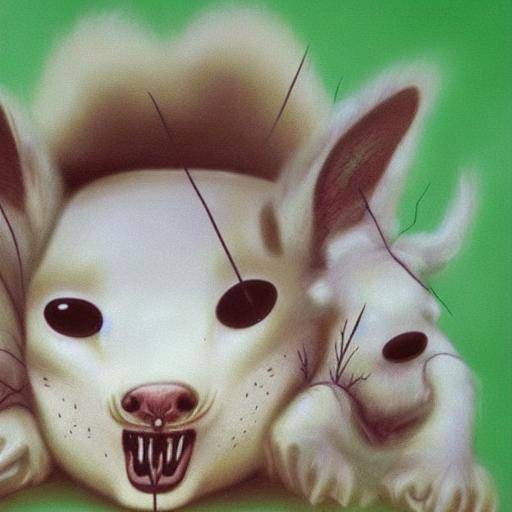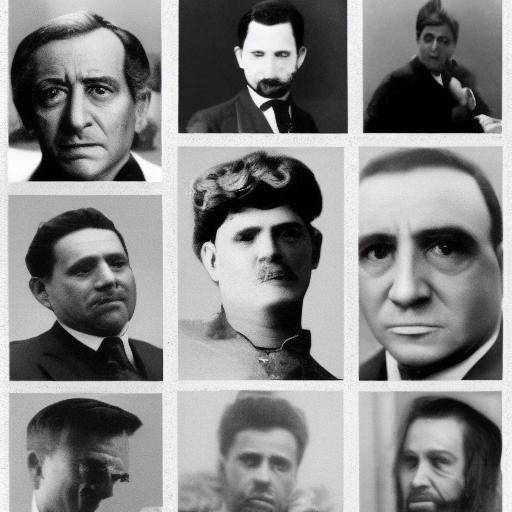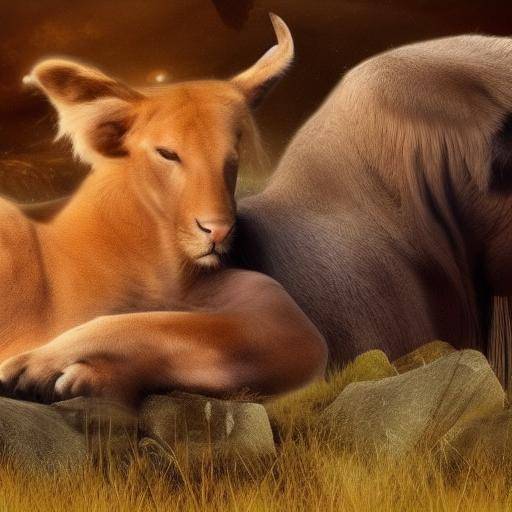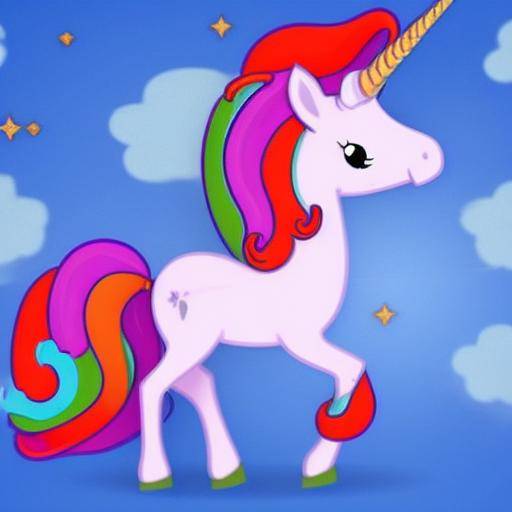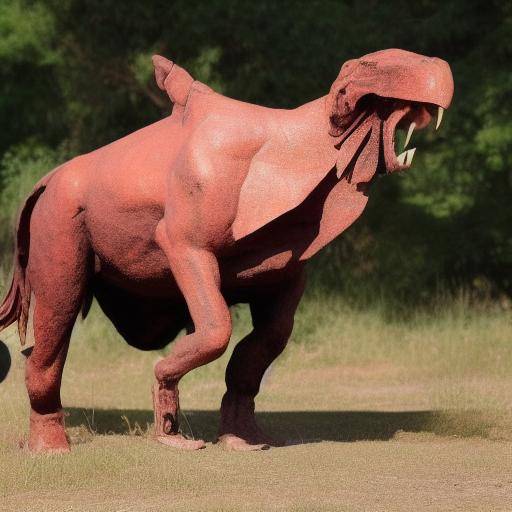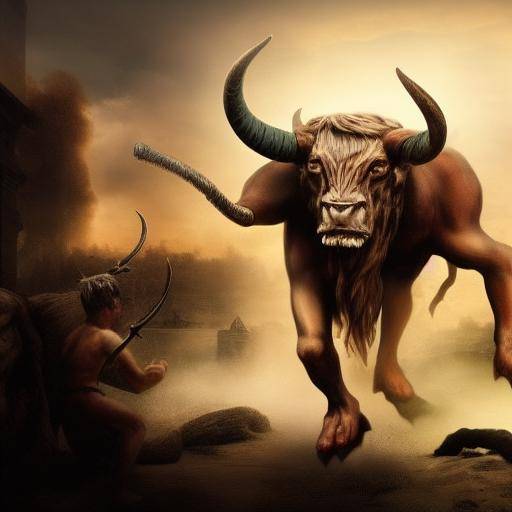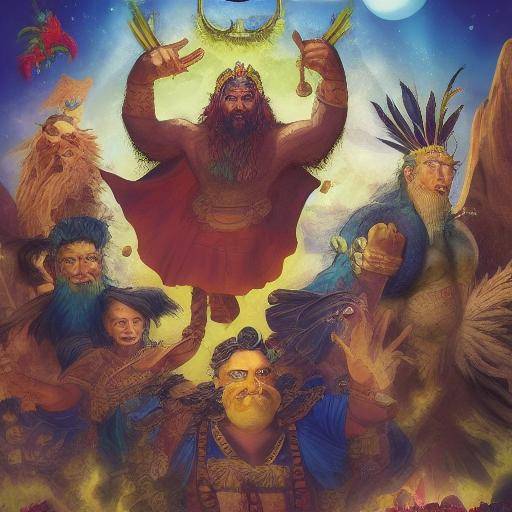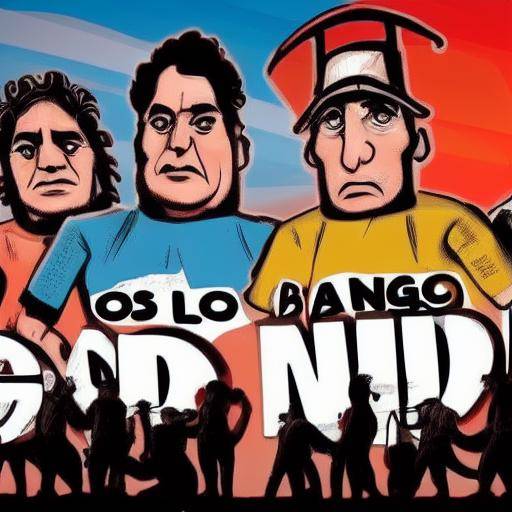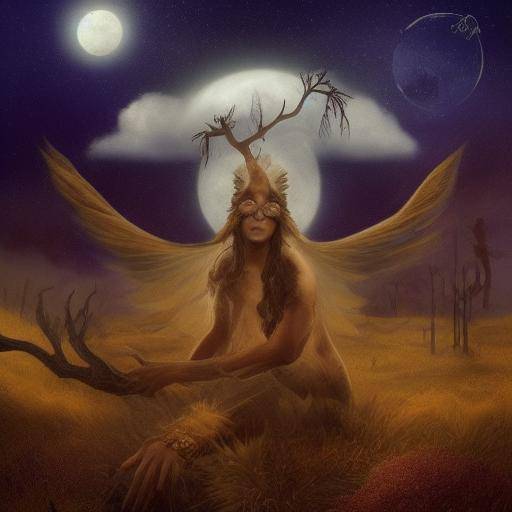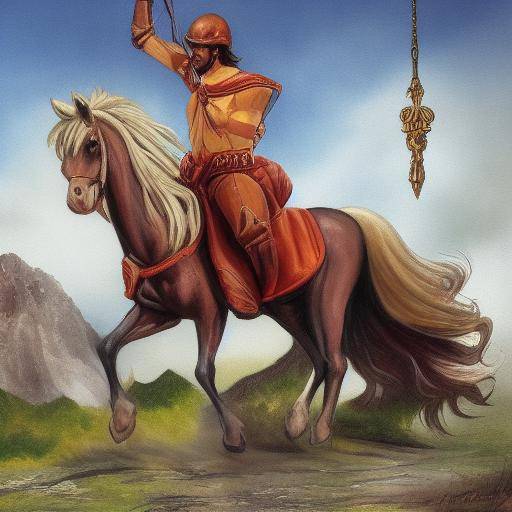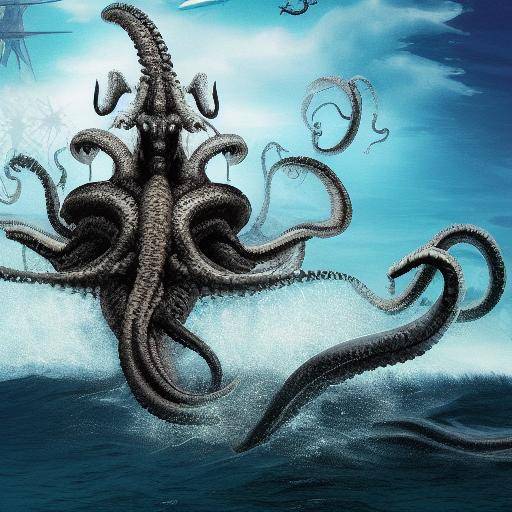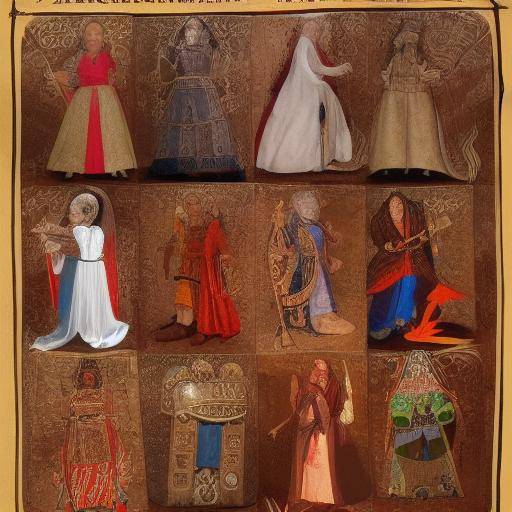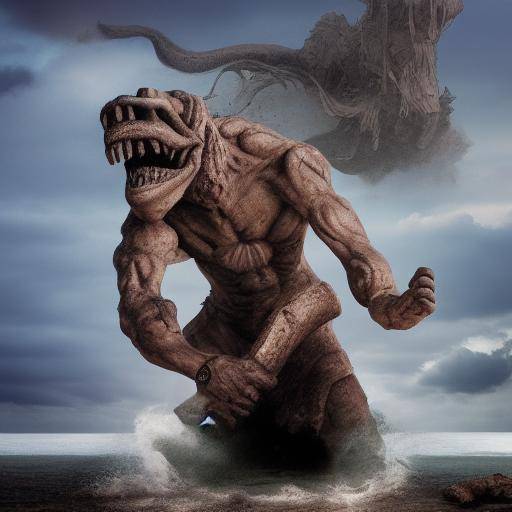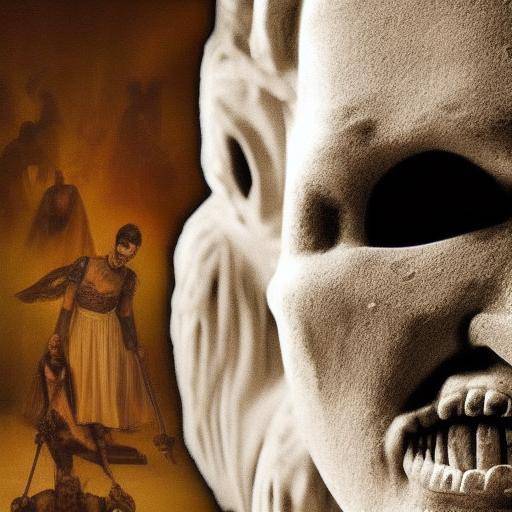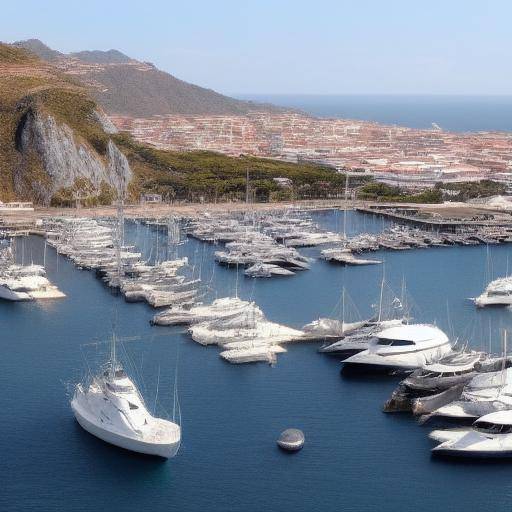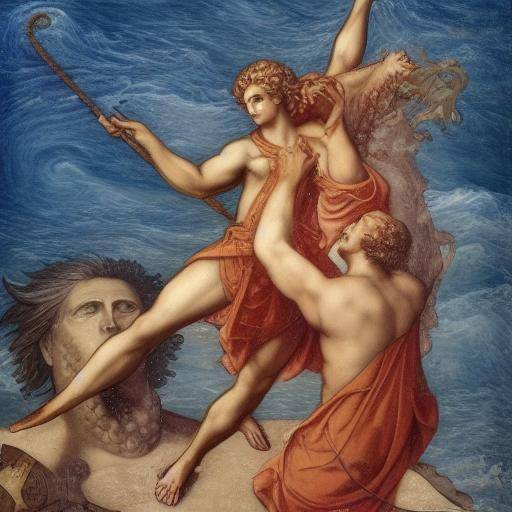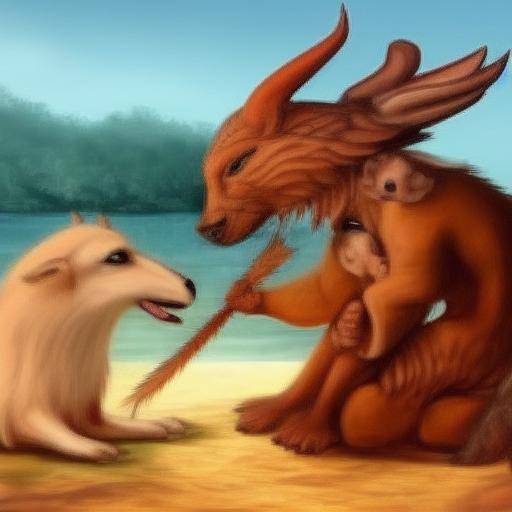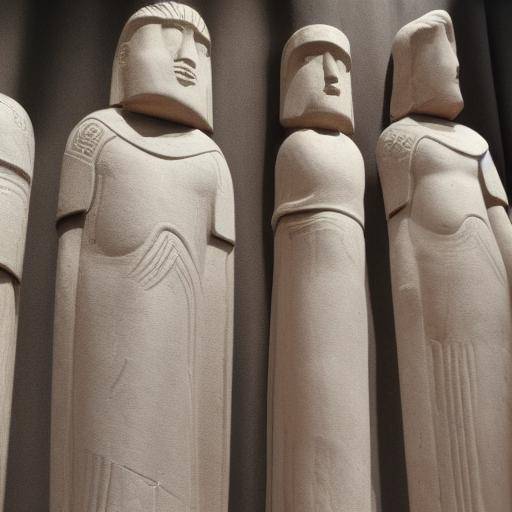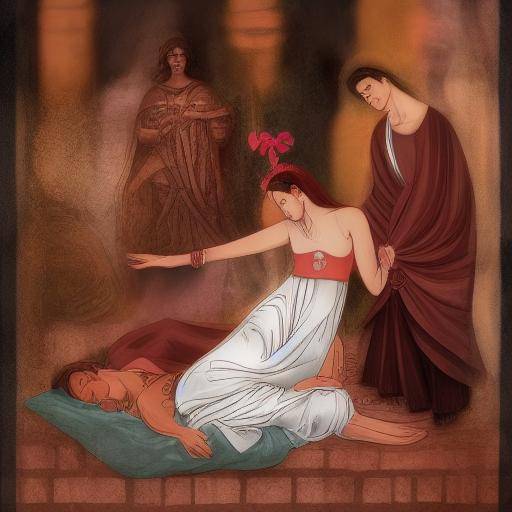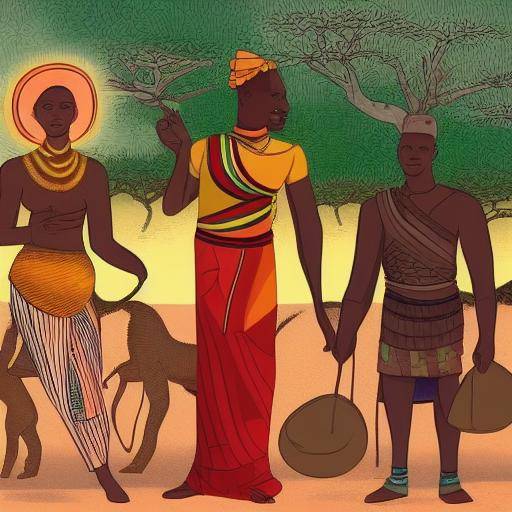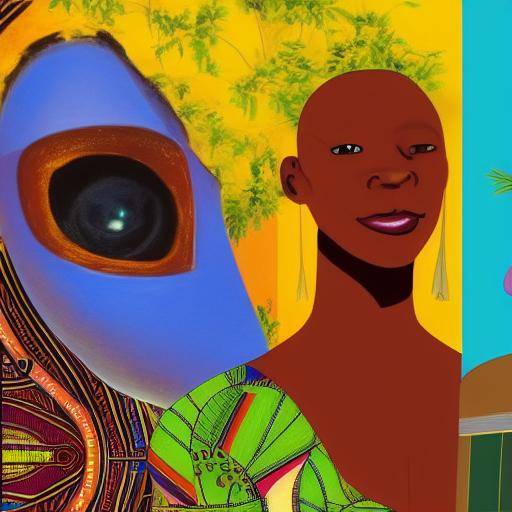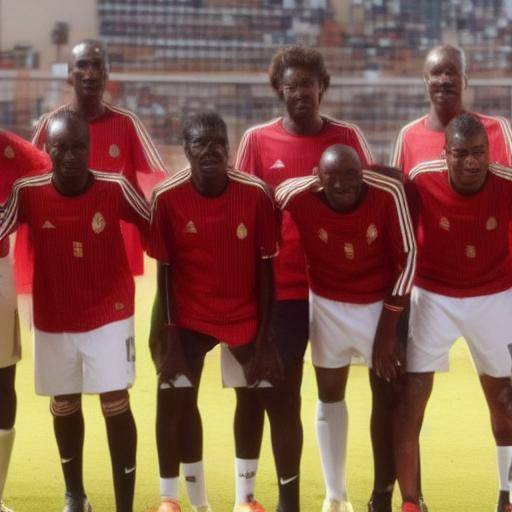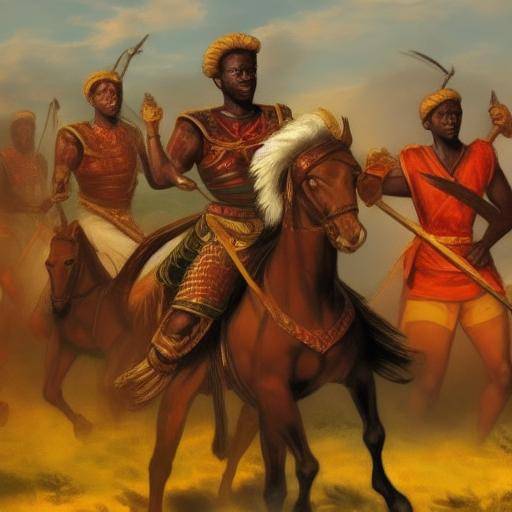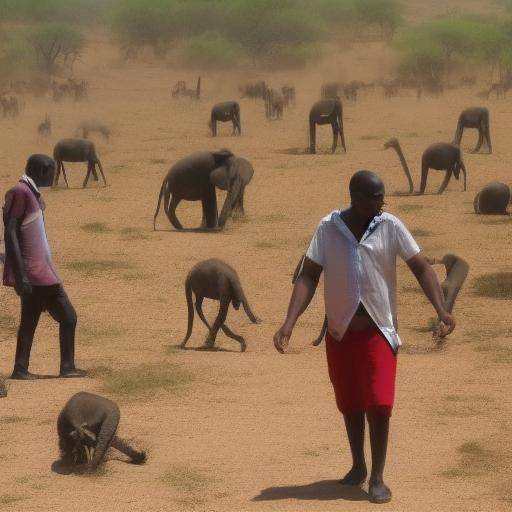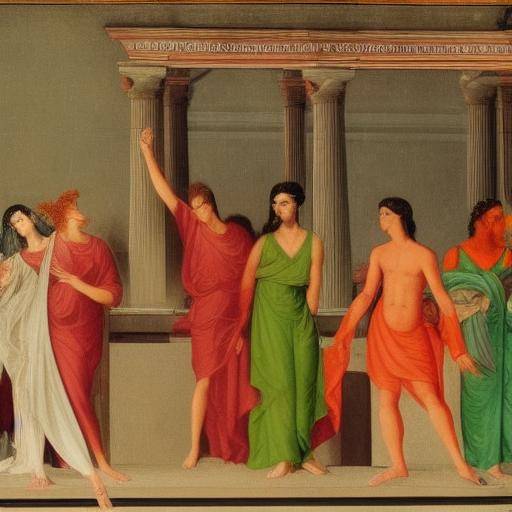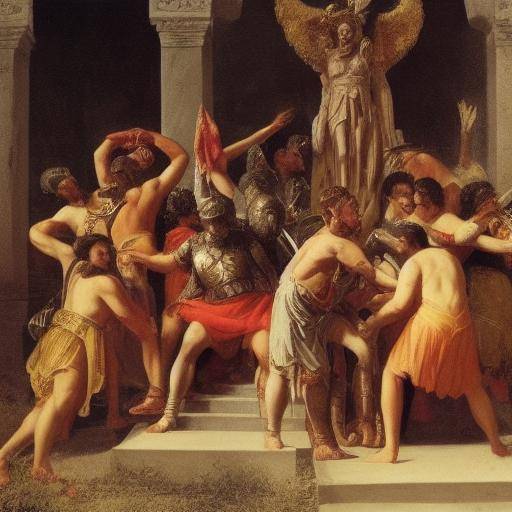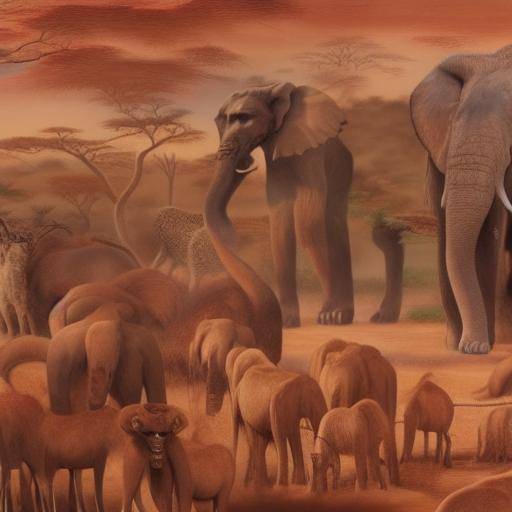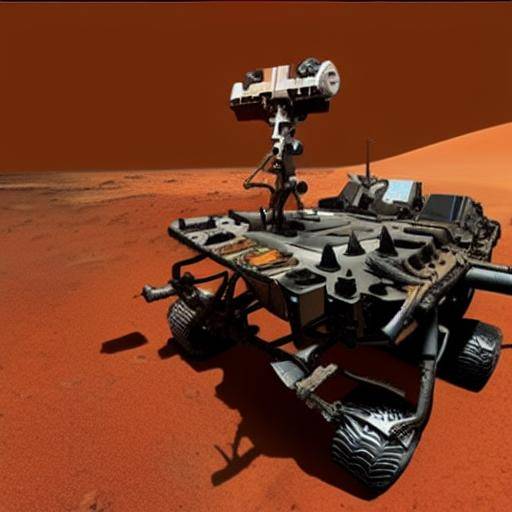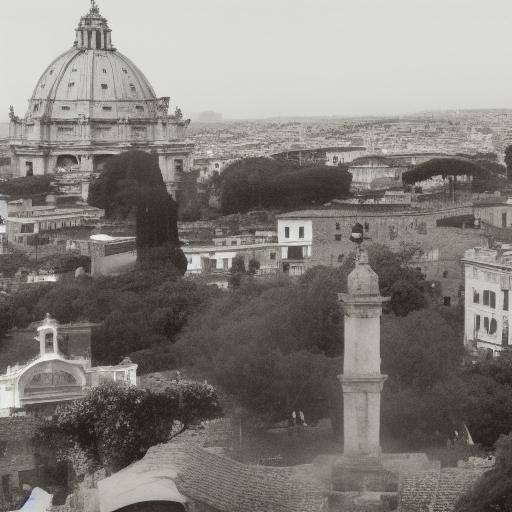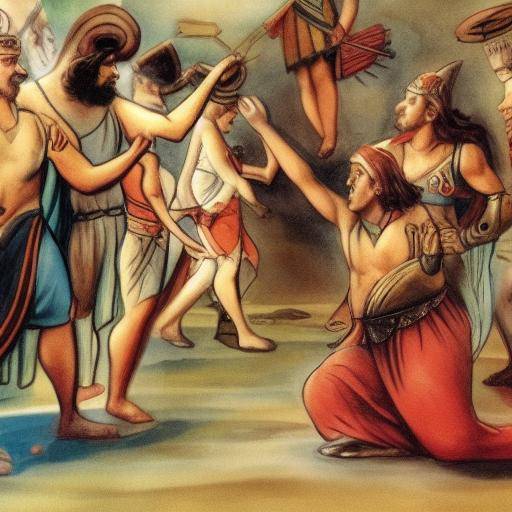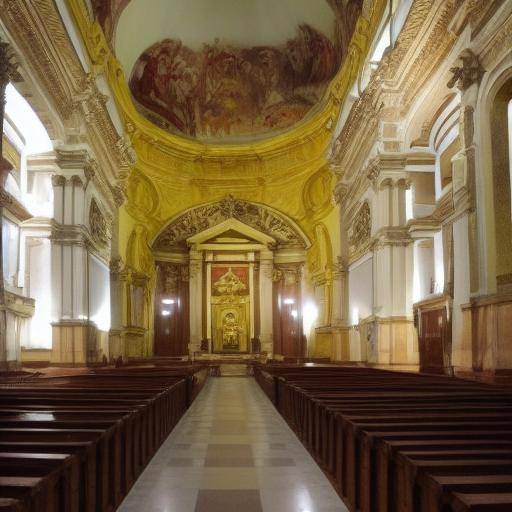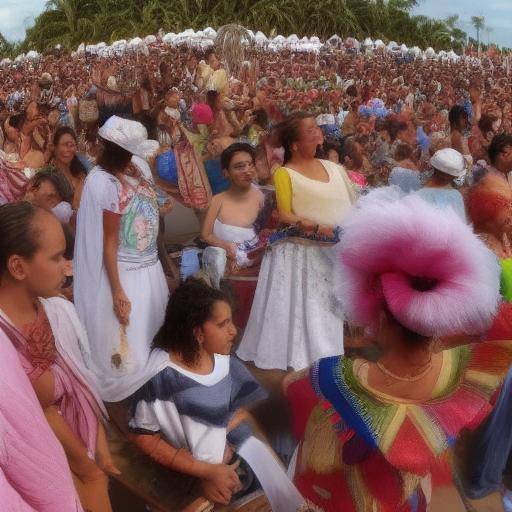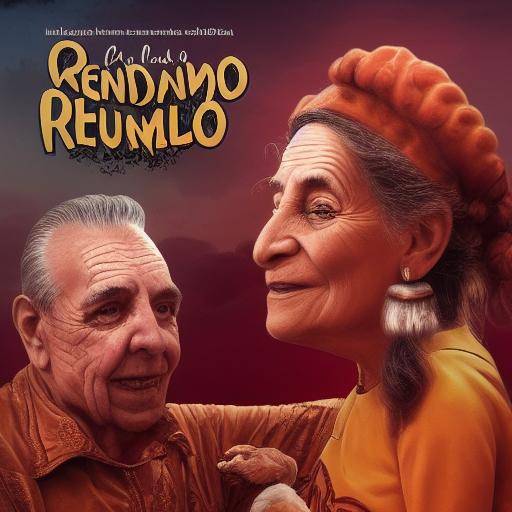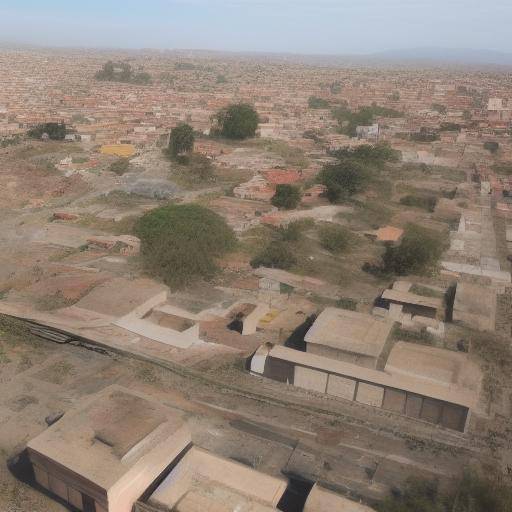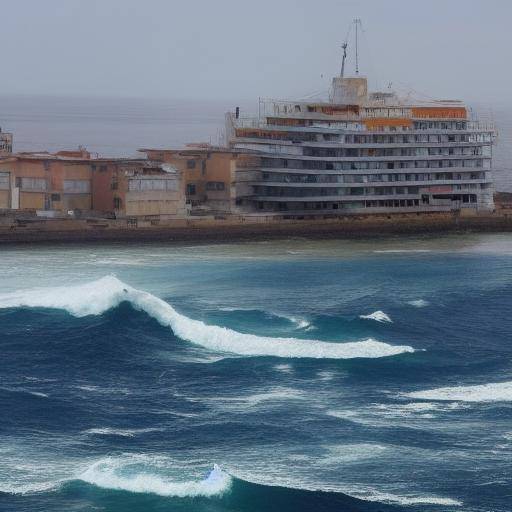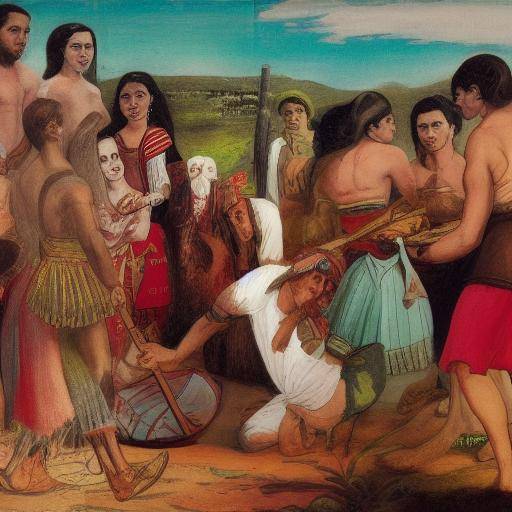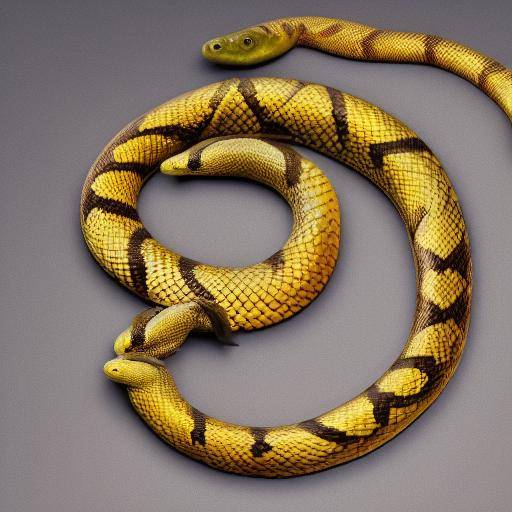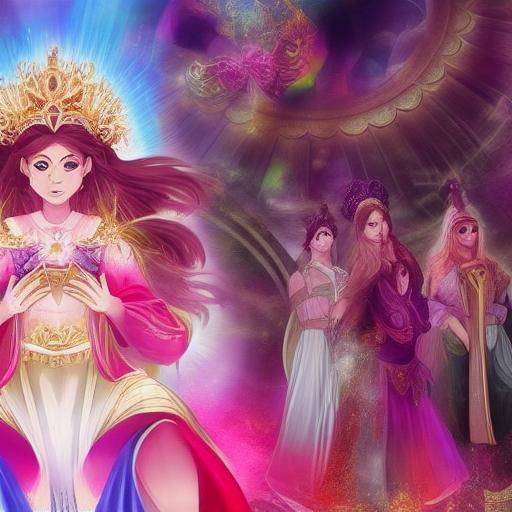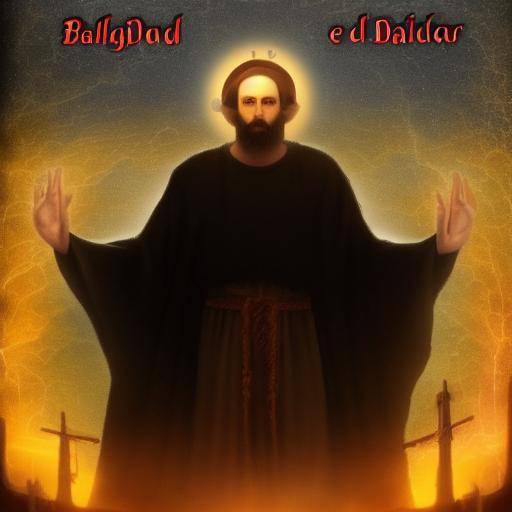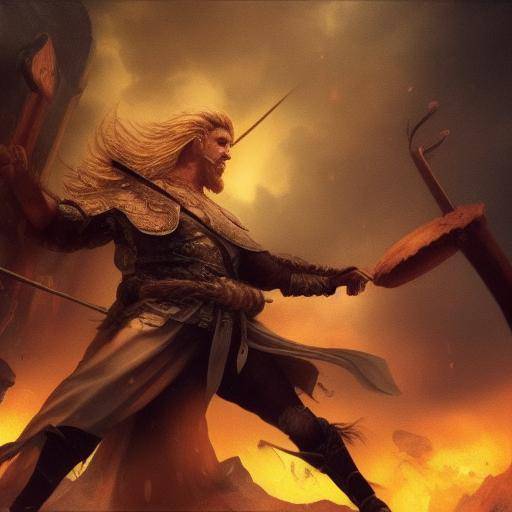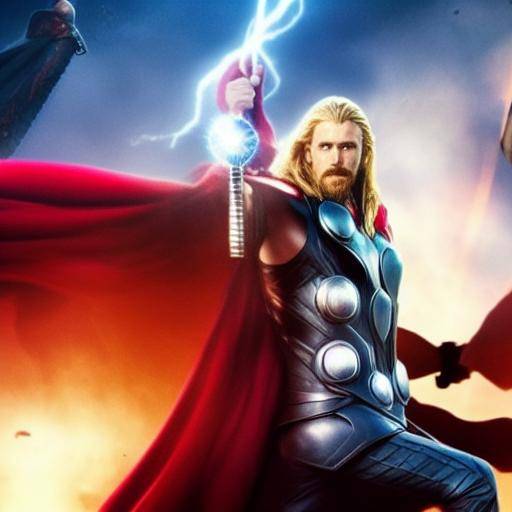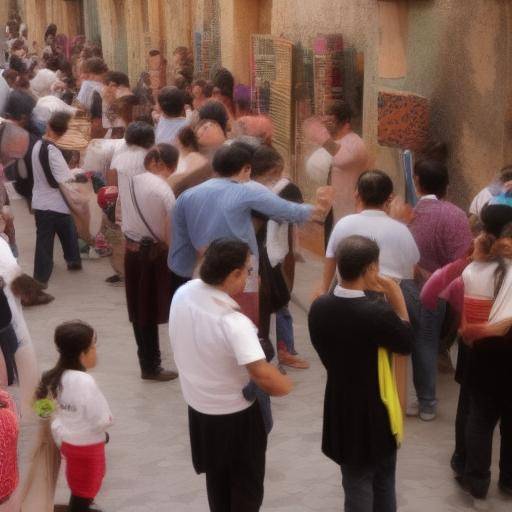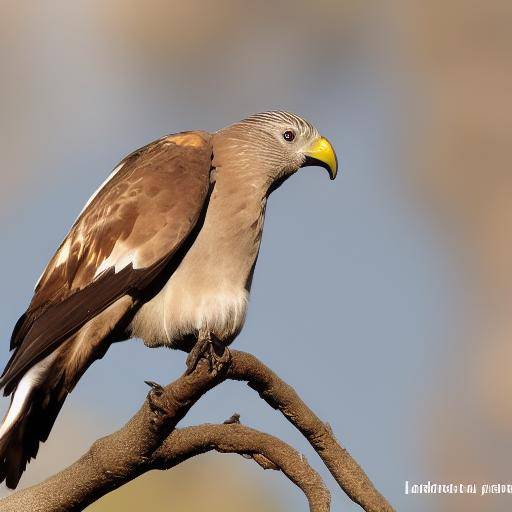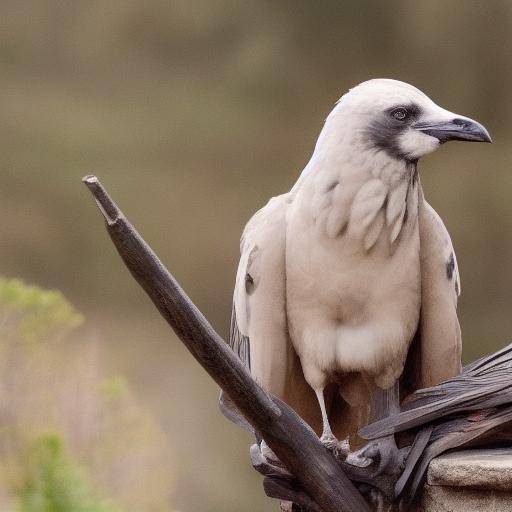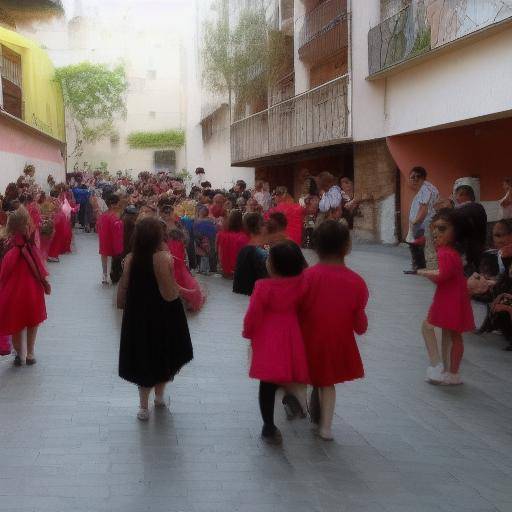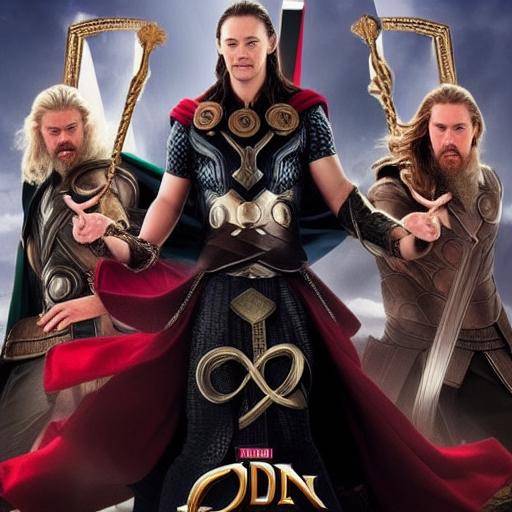
Nordic mythology is full of fascinating stories about gods, mythical creatures and mystical worlds. Among the highlights of these legends are the Odin, Thor and Loki gods. In this article, we will explore Nordic mythology, its most prominent gods and especially focus on the leader of the gods, Odin. In addition, we will analyze the influence of these figures on popular culture and its relevance today.
Introduction
Nordic mythology has captivated generations throughout history, being a fundamental element of Scandinavian culture and maintaining its influence today. Within this rich body of myths and legends, the Nordic gods play a central role. In particular, Odin, Thor and Loki emerge as iconic figures that embody different aspects of the Nordic universe.
In the following pages, we will immerse ourselves in the fascinating world of the Nordic gods, exploring their mythology, their legendary exploits and their impact on contemporary culture. Join us on this journey through the intricate webs of destiny woven by these powerful gods.
History and Origins of Nordic Mythology
The Nordic mythology, also known as Scandinavian mythology, has its roots in the pre-Christian religions of the German peoples of northern Europe. It was developed in regions such as Sweden, Norway, Denmark, Iceland and parts of Finland. This mythology was transmitted mainly in oral form, and was observed in sagas, eddic poems and later writings.
The Nordic gods occupied a central place in mythology, being worshipped and feared alike. Odin, the father of all, was venerated as the god of wisdom, war, poetry and death. Thor, known for his strength and energy, was the protector of the gods and humanity, while Loki, the cunning and deceptive, personified mischief and chaos.
Nordic mythology: Odin, Thor and Loki
Odin: The Father of All
Odin, also known as "The Father of All", is one of the most venerated gods in the Nordic mythology. He ruled over Asgard, the kingdom of the gods, from his majestic fortress, Valhalla. Odin possessed knowledge of the secrets of the universe and made great sacrifices in search of wisdom. He represents it with a patch in his eye, for he offered one of his eyes to Mimir, the keeper of the well of wisdom, in exchange for drinking from his waters.
The god Odin was also the leader of the brave warriors fallen in battle, known as the Einherjar, whom he welcomed in his banquet hall in Valhalla. This role as the leader of the fallen in combat reflects his connection to death, a crucial aspect of his divine nature.
Thor: The God of Thunder
Thor, the mighty god of thunder, was known to grip his magic hammer, Mjölnir, with whom he protected the gods and humanity from the forces of chaos and evil. It was attributed to attributes such as strength, courage and loyalty, making it a figure venerated by both the gods and the mortals.
Thor's adventures, his courage in the battlefield and his struggle against monstrous beings are recurring themes in the Nordic sagas, making him one of the most admired and respected gods.
Loki: The Astute Bromist
Loki, in contrast to Odin and Thor, personifies the mischief, deception and chaos in the Nordic mythology. Often portrayed as an intrepid and astute being, Loki plays an ambiguous role in legends, ranging between helping the gods and sowing discord among them. It is known for its transformations and its ability to change shape, which makes it an unusual and unpredictable figure in the Nordic pantheon.
The interaction between Odin, Thor and Loki in the Nordic legends is fundamental to understanding the complexities of mythology and the relations between the gods. These three characters, with their different personalities, offer a rich tapestry of stories that have captured the imagination of countless generations.
Influence in Popular Culture and News
The influence of the Nordic gods, in particular Odin, Thor and Loki, extends far beyond the ancient Scandinavian mythology. Today, these mythological figures have found a prominent place in popular culture, especially through literature, cinema, comics and video games.
The Marvel film universe, for example, has taken Thor and Loki to the big screen, presenting them to audiences around the world in an exciting and contemporary way. The popularity of these modern representations has revitalized the interest in Nordic mythology, leading to a greater appreciation of the original stories and their characters.
Conclusion
In short, the Nordic gods, in particular Odin, Thor and Loki, represent fundamental pillars of Scandinavian mythology. Their heroic feats, their complex interactions and their divine and human aspects make them immensely powerful and attractive. The lasting influence of these gods in contemporary culture attests to their immortality in human imagination.
Through the numerous representations and reinterpretations in literature, cinema and other forms of art, the Nordic gods have transcended the borders of time and space, perpetuating their legacy and their impact on modern society. His influence will continue to inspire new generations, keeping alive the fascination for Nordic mythology and its powerful gods.
FAQs
What is the origin of the Nordic mythology?
Nordic mythology has its roots in the pre-Christian religions of the German peoples of northern Europe, developing in regions such as Sweden, Norway, Denmark and Iceland.
Why is Odin known as the Father of All?
Odin is venerated as "The Father of All" because he ruled over Asgard, the kingdom of the gods, and was considered the supreme leader of the Nordic mythology.
What is Thor's role in Nordic mythology?
Thor is the mighty god of thunder, known for wielding his magic hammer, Mjölnir, and protecting the gods and humanity from the forces of chaos and evil.
How do Odin, Thor and Loki relate to Nordic legends?
The interaction between Odin, Thor and Loki is fundamental in Nordic mythology, as its complex relationships and joint ventures offer a rich upholstery of stories.
What is the relevance of the Nordic gods in the current popular culture?
The Nordic gods, in particular Odin, Thor and Loki, have found a prominent place in popular culture through literature, cinema, comics and video games, which has revitalized interest in Nordic mythology.
How have the Nordic gods influenced contemporary culture?
The lasting influence of the Nordic gods in contemporary culture attests to their immortality in human imagination, perpetuating their legacy and impact on modern society.
In conclusion, Nordic mythology and its gods, especially Odin, Thor and Loki, continue to be inexhaustible sources of inspiration and fascination, both in history and in contemporary culture. His legacy endures in the minds and hearts of those who are attracted by the depths of mythology and the mystery of the Nordic gods. Its influence is inseparable from the history of humanity and will continue to resonate throughout the generations to come. May Thor's thunder and Odin's wisdom continue to illuminate our paths in the vast cosmos of imagination!
This concludes our journey through the myths and legends of the Nordic gods, a fascinating universe that continues to awaken our curiosity and wonder.

